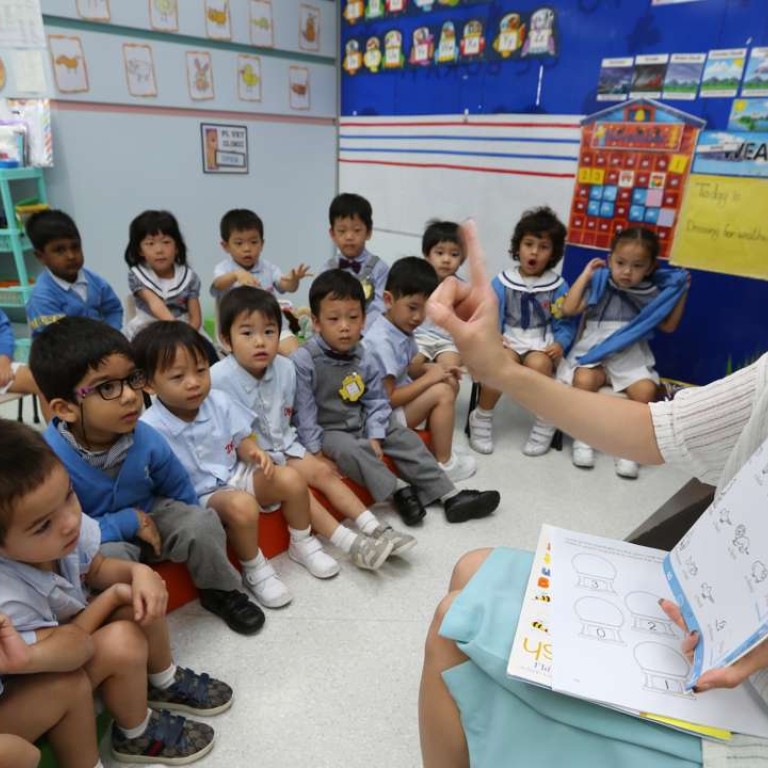
Hong Kong education chiefs stamp out study drills in city’s kindergartens
Revised curriculum puts emphasis on ‘play and free exploration’ to foster holistic development
Hong Kong’s education authorities are taking steps to stop kindergartens from using study drills, with new rules to discourage writing assignments for children during their first year of schooling.
Mechanical copying and calculations will also be discouraged in the second and final year of kindergarten under a revised set of guidelines released by the Education Bureau on Monday.
The “Kindergarten Education Curriculum Guide”, a revision of the 2006 version, puts emphasis on fostering children’s holistic development by learning through “play and free exploration”, according to the Bureau’s 115-page directive.
The bureau highlighted stipulations that kindergartens should not assign writing tasks in the first year of learning, while mechanical copying and calculations should not be given to those in the second and final year of kindergarten.
The revised framework also includes concrete recommendations to bridge the gap between kindergartens and primary schools, such as delaying dictation and written tests for one semester in Primary One, so that students will have more time to adjust to a new school environment.
“We hope that young children will not be subjected to additional stress and unnecessary drilling,” said Dr Anna Hui Na-na, the curriculum guide’s Ad hoc Committee chairperson.
“If kindergartens can help children cultivate an intrinsic motivation for learning, that already in itself will provide a very solid foundation for children to learn,” Hui said.
Hong Kong students, especially those in kindergarten and primary school, face immense pressure under syllabuses traditionally oriented towards exams and academic success.
The guidelines are expected to be implemented gradually as schools transition to a free kindergarten policy in the coming academic year.
Some 80 per cent of children in non-profit kindergartens, or 144,700 students in 760 schools, are expected to follow the rules.
Woo Chun-sing, principal assistant secretary for education, said such schools are required to undergo a quality review process, which evaluates their overall performance, curriculum implementation and planning, management and school culture.
“If kindergartens are found to have arranged developmentally inappropriate learning content or excessive amount of assignments for students, they will be advised to stop such practices,” Woo said.
Schools that ignore the guidelines and fail to pass the quality review face the possibility of losing government subsidies.
“Based on operational experiences, kindergartens have been receptive to the bureau’s advice,” Woo added.
However, the same monitoring process will not apply to kindergartens that will not participate in the coming free kindergarten policy.
In response, Woo said the bureau would follow up on complaints from parents of children at non-subsidised schools if any were made.
Stephanie Ng, whose five-year-old son is currently in year two of kindergarten, did not expect the school to take part.
“His school tends to focus on teaching more advanced materials compared to other kindergartens, and that is also their selling point. If that changes, they might be afraid that they won’t get anymore students,” Ng said.
At the age of five, Ng said her son already has to deal with daily homework and has to write compound words in Chinese.
“At the start of K2, I was surprised that they just started teaching him how to write without even teaching what’s the correct way to hold a pencil,” she said.
Dr Maggie Koong May-kay, chief principal of Victoria Educational Organisation’s kindergartens, said she hoped the government would consider writing guidelines targeted specifically for three-year-olds to third graders in primary school, which is done in the United States, to make transitions between kindergarten and primary schools more seamless.

